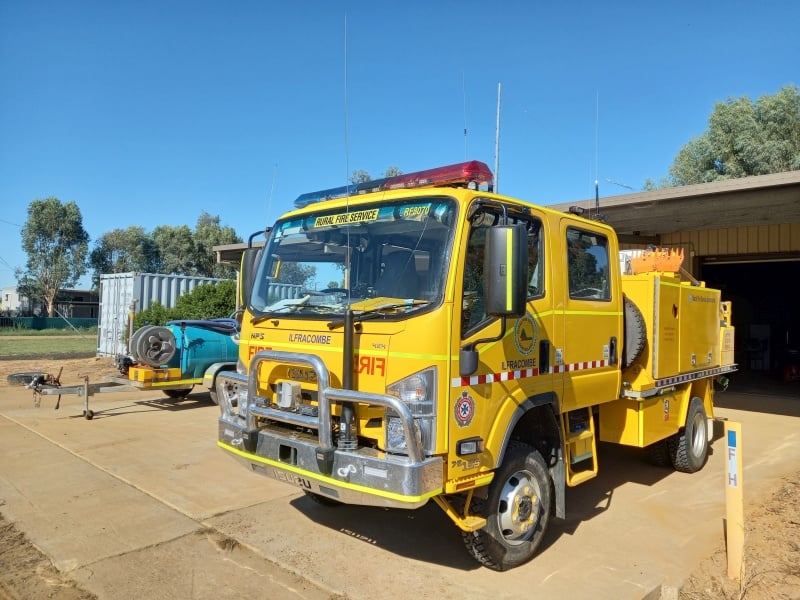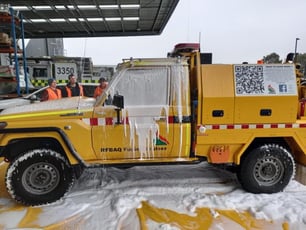Total Fleet for Rural Fire.
Since the huge fire seasons of 2018/2019 & 2019/2020 there has been no uplift of equipment to Rural Fire as there was in other states and territories and the backbone of the Rural Fire fleet, the medium attack firefighting vehicle is years behind in production with 83 medium attacks now delayed again until 2024. That will be 4 years that these vehicles have been in production with still no new yellow trucks in sight.
The engagement that Rural Fire has held with brigade members across the state has highlighted the frustration with no new trucks, an ageing firefighting fleet and training packages that do not meet brigade needs and are unobtainable.
Queensland is looking down the barrel of a large fire season this year and potentially a larger fire season again in 2024/25 and the equipment the brigades need to defend their communities is missing with no resolution insight.
The 2021 KPMG report into the QFES found that the vast majority of QFES corporate services are supplied to Fire and Rescue and that QFES corporate service culture is programmed to support Fire and Rescue -
At present, the allocation of corporate services appears skewed to supporting FRS as 86% of non-direct costs in FY21 were apportioned to FRS (as indicated in Section 3.2.1 Service line analysis).
By way of comparison, the split of non-direct costs across other services in FY21 was 6% for RFS, 6% for SES, 3% for DM and <1% for MR. This split has remained relatively consistent since FY15.
It is acknowledged the allocation of increased support to FRS may reiterate cultural challenges identified by stakeholders in relation to the perception that urban/professional fire functions have a more dominant and important role within the overarching QFES model.
The KPMG report, page 105, also found that there were too many corporate services FTE’s in the QFES.
Queensland has the lowest ratio of firefighters to support FTEs. This suggests Queensland is carrying additional support FTEs relative to other jurisdictions. KPMG believes that to deliver the savings proposed by QFES, there needs to be a reduction in the functions that need to be supported by corporate services personnel; QFES needs to leverage technological solutions; QFES needs to work with private sector partners; and/or QFES must standardise support arrangements to create efficiencies.
Below is the finding again from the KPMG report, page 88, that the QFES spends significantly less per brigade volunteer than anywhere else in Australia, yet every year all the money that the QFES raises from the community is gone.
At the other end of the spectrum, Queensland has the lowest comparative cost for RFS per volunteer relative to other jurisdictions. The difference is considerable, with Queensland’s spending between 4.7 and 8.4 times less per volunteer relative to Victoria, New South Wales, and South Australia.
The QFES was found to be a failed model and that is why it will cease to exist on the 1st of July 2024, but we need trucks, training and support now.
This has been discussed in the RFBAQ/RFSQ meeting that was held on the 10th of May at Kunda Park and it was agreed that this is the way forward to get the equipment out to defend communities across the state.
The RFBAQ are meeting with QFES Commissioner Greg Leach on Friday 23rd of June and at that meeting the RFBAQ will formally ask the Commissioner to immediately implement RFSQ Total Fleet which will bring all fleet functions from identifying the need through to acceptance and quality control within RFSQ and remove it from QFES Asset Services Directorate with the allocation of the necessary FTE to transition to RFSQ.

